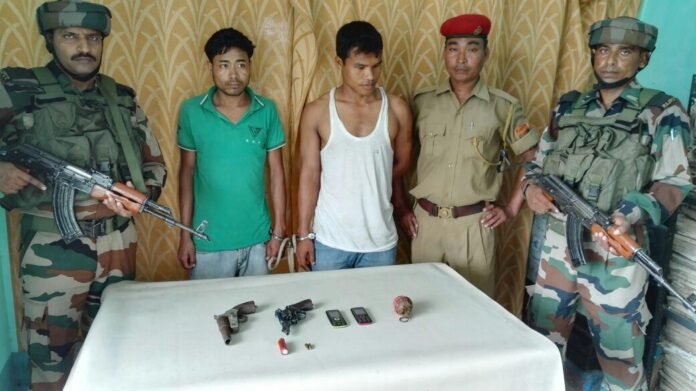In a decisive step forward in Assam’s crackdown on insurgent groups, 35 cadres of the banned National Democratic Front of Boroland (NDFB), including its senior leader M. Batha, were transferred to Kokrajhar District Jail on May 20, 2025. This move comes as the National Investigation Agency (NIA) officially handed over related cases to the Sessions Court, advancing the judicial process against the long-dormant insurgent outfit.
NDFB Cadres Moved as Legal Proceedings Accelerate
The mass transfer of NDFB cadres to Kokrajhar jail marks a key development in Assam’s ongoing efforts to dismantle the remnants of the banned organization. Officials stated that these individuals were earlier housed in different detention centers but have now been consolidated in one high-security facility to streamline legal procedures.
The central government and Assam police have been closely monitoring the situation to ensure a smooth handover and avoid any security lapses. With M. Batha—once a prominent face of the insurgency—among the transferred, the spotlight now shifts to how the Sessions Court will proceed.
Why Kokrajhar Jail?
Kokrajhar District Jail, located in western Assam’s Bodo heartland, is one of the region’s most secure detention facilities. Its strategic location and enhanced infrastructure make it suitable for housing high-profile insurgents.
The transfer is also symbolic—Kokrajhar was once a hub of NDFB activities. Now, the same region becomes a point of justice delivery. This reversal holds importance for those affected by the decades-long conflict in Bodoland Territorial Region (BTR).
Learn how security operations in Assam are evolving to maintain long-term peace.
NIA Case Handover to Sessions Court
The NIA had been investigating several cases linked to the NDFB under various charges, including terrorism, extortion, and illegal arms possession. After completing its initial probe, the agency transferred the case to the local Sessions Court, signaling the start of full-fledged judicial trials.
This handover also reflects a shift in focus—from intelligence gathering to prosecution. Authorities now hope that justice will be delivered quickly and transparently to restore faith among affected communities.
For related developments in Assam’s law enforcement, check out our report on Guwahati dumpyard raids.
Assam’s Message to Insurgent Groups
By bringing NDFB cadres to Kokrajhar jail and moving their cases to trial, the Assam government sends a clear message: the era of tolerance toward militancy is over, the state is increasingly investing in a security-first approach while offering rehabilitation to those who genuinely surrender.
State officials have repeatedly emphasized that while peace accords have helped integrate many former rebels, those involved in fresh or unpardoned crimes will face the full force of the law.
Read how Assam’s counterinsurgency efforts have transformed over the past decade.
Public Reaction and BTR Sentiment
In Kokrajhar and other parts of the Bodoland Territorial Region, the transfer of NDFB cadres has sparked mixed reactions. Further, while victims of past violence welcome the legal action, some locals fear renewed instability.
However, community leaders have urged restraint and cooperation with law enforcement to ensure that peace gains achieved in recent years are not reversed.
The public is also hopeful that ongoing trials will finally bring closure to families who lost loved ones during the NDFB’s violent years.
A Call to Uphold Justice and Peace
As the legal process gains momentum, it is vital for both the judiciary and the administration to maintain transparency and sensitivity. A fair and fast trial of the NDFB cadres in Kokrajhar jail will serve not only justice but also long-term reconciliation in the region.
Internal Links:
Outbound Links:

